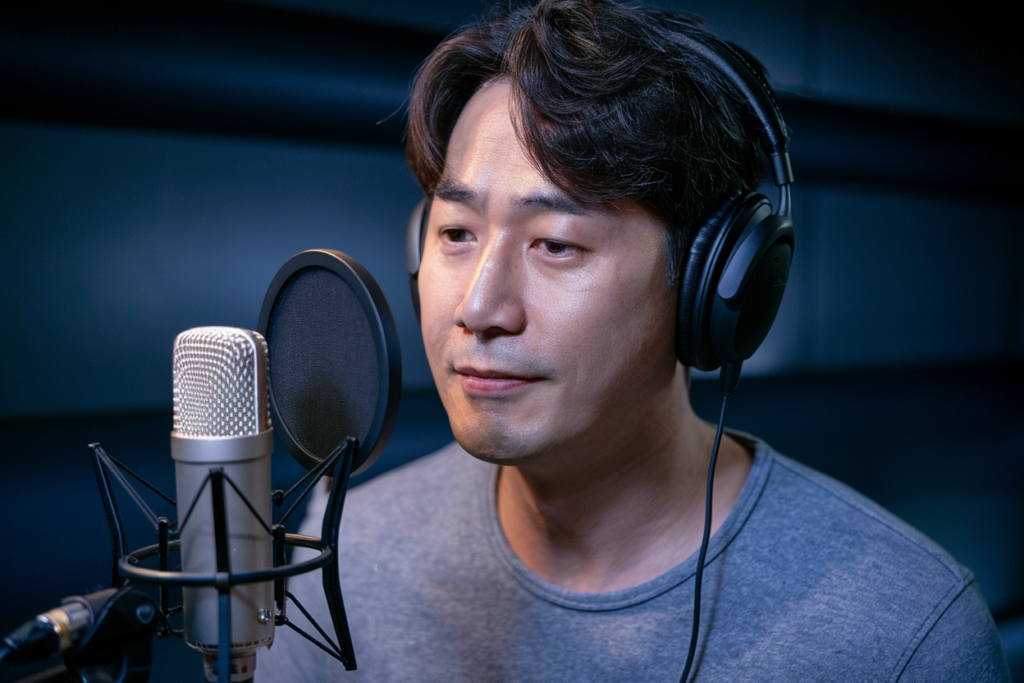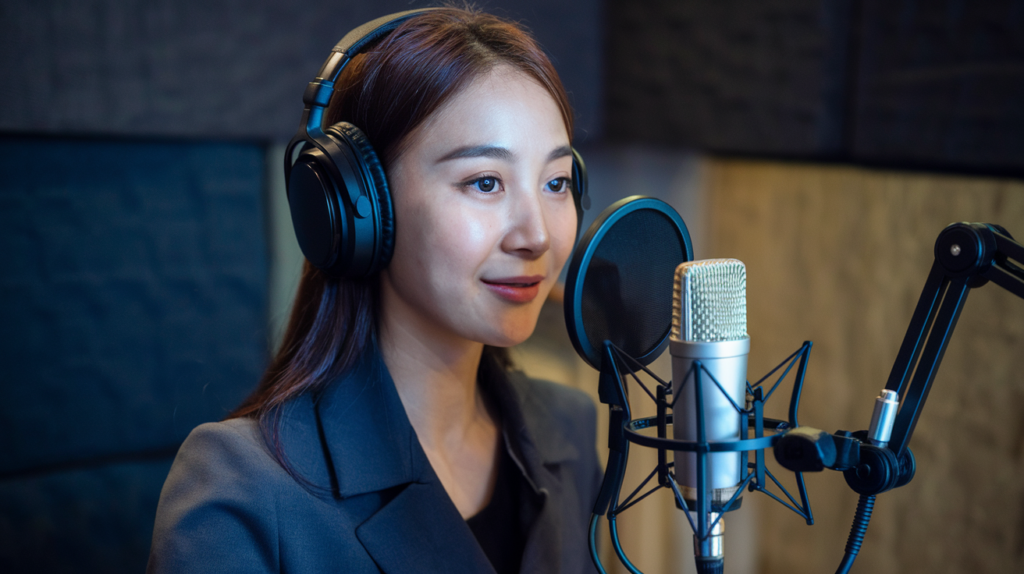Key Takeaways
- The official Korean accent is primarily based on the Seoul dialect, serving as a linguistic standard for education and media in South Korea.
- Understanding regional accents, such as Busan and Jeju Island, enhances communication and cultural appreciation while providing authenticity in voiceover work.
- Key characteristics of the official accent include clear pronunciation, melodic intonation, and moderate speech pace, which are essential for effective interaction.
- Historical context plays a significant role in the development of the official accent, particularly during Korea’s efforts to establish a national identity post-independence.
- Familiarity with regional differences influences how messages are perceived across various contexts, improving engagement in both personal and professional settings.
- Mastering local nuances can increase relatability and effectiveness for voice talent working within Korea’s diverse entertainment landscape.
Ever wondered what the official Korean accent sounds like? Understanding this accent can unlock a deeper appreciation for Korea’s rich culture and language. Whether you’re planning to travel or just curious about linguistics, getting to know the nuances of the official Korean accent is key.
Overview of Korean Accents
Korean accents reflect the rich diversity within Korea’s language and culture. The primary accent, known as the standard accent, is based on the Seoul dialect. This accent serves as a linguistic benchmark for education and media across South Korea.
Various regional accents exist throughout the country, each showcasing distinct phonetic characteristics. For instance, Busan’s accent features shorter vowel sounds and unique intonations that set it apart from Seoul’s more neutral tone. Similarly, Jeju Island has its own distinctive accent with specific lexical choices that can confuse non-native speakers.
Familiarity with these accents proves beneficial for effective communication in different contexts. Whether you’re traveling or engaging in voiceover work that requires authentic representation of characters from various regions, understanding these nuances enhances your overall experience.
In addition to regional differences, social factors also influence how individuals speak Korean. Age, education level, and even profession impact one’s speech patterns. These elements contribute to an evolving landscape of spoken Korean that reflects societal changes over time.
Gaining insights into these accents doesn’t just deepen your understanding of the language; it also enriches your appreciation for Korea’s cultural heritage. So whether you’re looking to connect on a personal level or enhance your skills in voice acting projects involving Korean dialogues, mastering the official accent and recognizing regional variations plays a crucial role in achieving authenticity.
Defining the Official Korean Accent
The official Korean accent serves as a crucial linguistic standard in South Korea. It primarily derives from the Seoul dialect, which influences education and media nationwide. Understanding this accent enhances communication, especially for those engaging with Korean culture or language.
Characteristics of the Official Korean Accent
The official Korean accent features specific phonetic traits that distinguish it from regional variations. Key characteristics include:
- Pronunciation: Clear articulation of vowels and consonants is vital. The Seoul dialect emphasizes a distinct separation between sounds.
- Intonation: A melodic tone often accompanies speech, reflecting emotional context while maintaining clarity.
- Pace: Speech typically flows at a moderate pace, allowing for easier comprehension among listeners.
Recognizing these traits can significantly benefit voice talent aiming to connect authentically with their audience.
Dialects and Variations
Korea boasts diverse dialects influenced by geography and culture. While the official accent is centered around Seoul, other regions contribute unique elements:
- Busan Dialect: Known for its softer pronunciation and specific vocabulary choices, this dialect often surprises newcomers.
- Jeju Island Dialect: Featuring distinctive phonetics and expressions, Jeju’s speech patterns differ notably from mainland accents.
Familiarity with these variations helps you adapt your voiceover work to different audiences effectively. Tailoring your delivery to match local nuances can enhance relatability and engagement during projects like commercials or educational content. Embracing this diversity enriches not only your skill set but also your appreciation of Korea’s rich cultural tapestry.
Historical Context
The official Korean accent has evolved significantly over time, reflecting the country’s dynamic history and cultural shifts. Primarily rooted in the Seoul dialect, this accent emerged as a linguistic standard during the Japanese colonial period. The need for a unifying communication style became essential as Korea sought to establish its national identity.
Development of the Official Korean Accent
Development of this accent took shape with the establishment of modern education systems in Korea. In 1945, after gaining independence from Japan, efforts intensified to promote standardization across various regions. As Seoul emerged as the political and cultural hub, its dialect gained prominence. Educational institutions adopted this pronunciation and vocabulary, reinforcing its status as an official language used in media and literature.
Influence of Media and Education
Media played a vital role in shaping public perception of the official Korean accent. Television broadcasts, radio programs, and films increasingly utilized this standard form, making it more accessible to audiences nationwide. As people consumed content featuring this accent daily, they began to adopt its nuances into their speech patterns.
Education further solidified this influence by incorporating lessons centered around formal language use. From classrooms to public speaking events, teachers emphasized correct pronunciation aligned with the official accent standards. This focus on education ensures that both voice talent and aspiring voice artists connect effectively with diverse audiences while maintaining authenticity in their delivery styles.
Understanding these historical developments enhances your ability to appreciate not only the nuances involved but also how they can impact communication strategies within various contexts like voiceovers or public presentations.
Regional Differences
Korean accents vary significantly across regions, each showcasing unique phonetic traits and expressions. Understanding these differences enhances your communication skills, especially if you’re engaging with Korean culture or working in the voiceover industry.
Comparison with Other Korean Accents
The official Korean accent, based on the Seoul dialect, serves as a linguistic standard. However, other regional accents like Busan and Jeju Island present distinct characteristics.
- Busan Accent: This accent features softer pronunciations and specific vocabulary that can differ greatly from Seoul’s standard. For instance, certain verbs might change forms entirely.
- Jeju Island Accent: Known for its unique phonetics and expressions, this dialect includes words not found in standard Korean. The distinctiveness can challenge even fluent speakers.
For voice talent aiming to connect authentically with diverse audiences, recognizing these variations is crucial. Adapting your delivery to match local nuances can enhance relatability in projects.
Impact on Communication
Regional accents influence how messages are received across different contexts. When you’re aware of these distinctions, it becomes easier to engage effectively with various demographics.
For example:
- Social Dynamics: Certain accents may evoke familiarity or trust among locals.
- Professional Settings: In business communications or presentations, using an accent that resonates with your audience fosters better understanding.
If you’re a voice artist or actor exploring opportunities in Korea’s entertainment industry, mastering regional accents can widen your appeal. Being versatile in accents allows you to tailor performances that resonate more deeply with target audiences while maintaining authenticity in every project.
Conclusion
Grasping the nuances of the official Korean accent opens doors to richer interactions with Korean culture. Whether you’re traveling or diving into voice work understanding this accent equips you with essential communication skills.
By recognizing regional accents like those from Busan and Jeju Island you’ll enhance your ability to connect with locals meaningfully. This knowledge not only enriches your experience but also elevates your proficiency in navigating different contexts.
Embracing these linguistic variations allows you to engage authentically while fostering trust and familiarity. Mastering the official accent and its regional counterparts can significantly impact how others perceive your connection to Korea, making it a vital tool for anyone interested in this vibrant culture.
Frequently Asked Questions
What is the official Korean accent?
The official Korean accent primarily stems from the Seoul dialect. It serves as a linguistic standard across Korea, influencing education and media. Familiarity with this accent is essential for anyone interested in understanding Korean culture or language better.
Why is understanding regional accents important?
Understanding regional accents, like those from Busan and Jeju Island, helps improve communication in various contexts. Each accent has unique phonetic traits and vocabulary that can enhance relatability, particularly for travelers or voice talent aiming to connect authentically with local audiences.
How did the official Korean accent evolve?
The official Korean accent evolved significantly during Korea’s history, especially during the Japanese colonial period when a unified communication style became necessary. Post-1945 education systems reinforced the prominence of the Seoul dialect in media and literature.
What role does media play in shaping accents?
Media has been pivotal in popularizing the official Korean accent through television, radio, and films. This exposure makes it more accessible to audiences while solidifying its use as a standard pronunciation aligned with educational norms.
How do social factors influence speech patterns in Korean?
Social factors such as age, education level, and profession greatly influence how people speak Korean. These elements contribute to evolving speech patterns and regional variations within the language that reflect broader societal changes.
Why should voice talent understand these accents?
For voice talent, mastering different Korean accents enhances their ability to connect with diverse audiences. Adapting delivery to match local nuances increases authenticity and relatability in performances across various media platforms.







